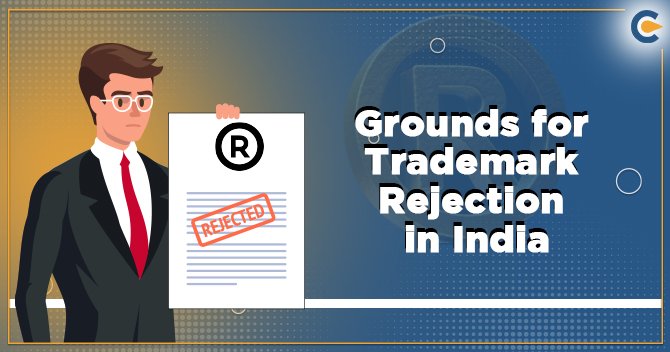A trademark is a form of IPR i.e. intellectual property right that facilitates exclusive rights to the owner over the name, logo, or design. Thus, trademark registration is vital to building a brand for your firm. This write-up will walk you through the different types of trademark classes as well as the benefits of having the same.
Trademark registration instills matchless credibility within the brand belong to a certain owner. Registering a mark under a specific trademark class renders various advantages to the recipient. This will not only ensure comprehensive right over the mark but also act as a stimulant for brand growth.
What do you mean by the term “Trademark”?
Fundamentally, a trademark denotes any expression, design, or symbol that helps identify products and services. A trademark registration bestows exclusive rights to the owner over the logo, name, color, mark, or combination that enables the customer to differentiate a particular product or service from the rest.
Henceforth, the process of trademark registration is of utmost importance for the success of the firm as it helps with branding as well as marketing. If a business does not possess registered trademarks then others may take advantage of it that will eventually lead to a dispute. However, a legal trademark facilitates comprehensive protection to the logo, name, symbol[1], or brand of the company from such mishaps.
An Outlook on Different Types of Trademarks
Here is a quick glance at a different type of trademark available within the legal parlance of our nation.
Service Trademarks
As the name suggests, Service Trademarks are normally obtained by firms that exist in the service sector. It is mainly used by the owner of transporters, hotels, healthcare shops, and retailers to safeguard their brand name. Such trademark classes do not encompass goods and products.
Collective Trademark
Such trademarks are available to the group of individuals known as collective. These trademarks enable various companies to avail protection collectively & to publically share the various features of their product.
Certification Trademark
These trademarks usually specify the standard of the specific product or item. It ensures end-users that a particular product has passed the required quality protocol and testing. Certificate Trademark is predominately used by electronics firms to assure the quality of their products.
Unconditional Trademark
Trademarks that are unique from the rest and reap recognition due to such a distinctive feature are known as Unconditional Trademarks. One can found such trademarks in the following forms;
- Design trademark, predominately used for the logo, such as Nike’s tick symbol.
- Sound trademark for a distinct soundtrack such as guitar tones or musical notes.
- Color Trademark for a distinct color or color combination, acting as the distinctive feature of a trader.
- Smell trademark used to safeguard unique fragrance.
Read our article:An Overview on Document Required for Trademark Registration
An Overview on the Concept of Trademark Classes
Trademark classes revolve around the nature of the goods and services for which the users intend to avail trademark protection. Presently, 45 different trademark classes exist in our country as per the Trademark Act. These classes enable users to avert trademark objections in the future & permit for the streamlined registration of the mark.
Out of an aforesaid number of trademark classes, 34 are allocated for product classes and the rest of them help with the registration of service marks. While all goods & services fall under one of these classes, each class talks about a broad range of products or services that often fail to fit your actual trademark description.
Applicants can opt for several classes of a trademark that encompass their product or service. In case if they chose to register under one trademark class, then they will need to apply via Form- TM-1. Similarly, if they opt for a collective trademark, then they have to apply via Form TM-A.
Tabular representation of different Trademark classes in India
Trademark Class 1 – Chemicals
Trademark Class 2 – Paints
Trademark Class 3 – Cosmetics & cleaning solutions
Trademark Class 4 – Lubricants & fuels
Trademark Class 5 – Pharmaceuticals
Trademark Class 6 – Metal goods
Trademark Class 7 – Machinery
Trademark Class 8 – Hand tools
Trademark Class 9 – Electrical apparatus
Trademark Class 10 – Medical apparatus
Trademark Class 11 – Environmental control apparatus
Trademark Class 12 – Vehicles
Trademark Class 13 – Firearms
Trademark Class 14 – Jewelry
Trademark Class 15 – Musical instruments
Trademark Class 16 – Paper goods
Trademark Class 17 – Rubber goods
Trademark Class 18 – Leather goods
Trademark Class 19 – Non-metallic building materials
Trademark Class 20 – Furniture & other unclassified articles
Trademark Class 21 – Housewares & glass objects
Trademark Class 22 – Cordage & fibers
Trademark Class 23 – Yarns & threads
Trademark Class 24 – Fabrics
Trademark Class 25 – Clothing
Trademark Class 26 – Fancy goods
Trademark Class 27 – Floor coverings
Trademark Class 28 – Toys & sporting goods
Trademark Class 29 – Meats & processed foods
Trademark Class 30 – Staple foods
Trademark Class 31 – Natural agricultural products
Trademark Class 32 – Light beverages
Trademark Class 33 – Wines & spirits
Trademark Class 34 – Smoking articles
Trademark Class 35 – Advertising & business
Trademark Class 36 – Insurance & financial
Trademark Class 37 – Building, construction & repair
Trademark Class 38 – Telecommunication
Trademark Class 39 – Transportation & storage
Trademark Class 40 – Treatment of materials
Trademark Class 41 – Education & entertainment
Trademark Class 42 – Legal, scientific & computer services
Trademark Class 43 – Hotels & restaurants
Important Prerequisites to consider before opting for Trademarks Protection
Here is a quick glance at the factors one needs to remember before opting for trademark protection for their business.
- Trademarks should not adhere to vagueness. Instead, it ought to be simple and clear so that the viewer can memorize it instantly. Thus, opt for short and succinct words because they are easily read out and attract more eyeballs.
- The proposed mark should be unique; it should not bear any resemblance whatsoever with the prevailing brands. Avoid imitating someone else name or logo for the sake of instant success because such acts end up in legal proceedings.
- Avoid applying registration for geographical names & proper nouns as no one can rights to ensure ownership over commonly used words.
- Presently, the trademark application is available for the following items;
- A letter, number or sign as well as any combination of these
- Sound marks
- 3-D signs or symbols
- Logos as well as graphic designs
- Monograms
- Different colors as well as color combinations
Conclusion
While going for trademark registration, it’s better to have a basic idea of trademark classes to avoid any confusion. In case if you seek further detail on trademark classes then proceed to CorpBiz’s professional for precise and spot-on assistance.
Read our article:How Can You Apply For Online Trademark Registration in India?











